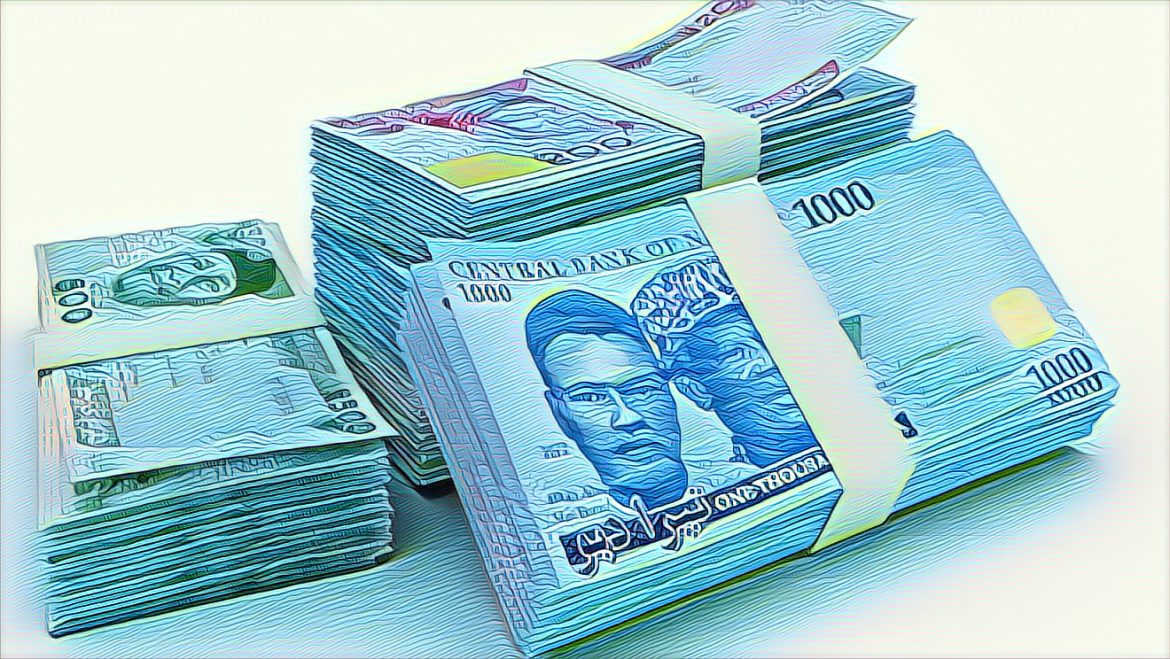Nigeria’s currency, the naira, has shown notable stability over the past month. It has been trading between N1,476 and N1,485 against the dollar in the official foreign exchange market. Despite this stability, concerns about its sustainability remain.
Charlie Robertson, head of Macro Strategy at FIM Partners UK Ltd, explains that there is a certain level where a currency becomes too cheap to weaken further unless inflation is out of control. He noted that the naira is currently at such a level. According to Robertson, the naira’s cheapness likely results in a current account surplus every month, which helps stabilize the currency.
The stability of the naira has been attributed to low demand for dollars and increased dollar inflows. These factors have contributed to strengthening Nigeria’s external reserves, which in turn support the value of the naira. In the last month, Nigeria received about $5.95 billion from the World Bank and Afreximbank. These funds have bolstered Nigeria’s external reserves, enhancing the naira’s stability.
As of June 20, 2024, Nigeria’s external reserves stood at $33.640 billion, reflecting a 2.81 percent increase from $32.720 billion on May 20, 2024, according to data from the Central Bank of Nigeria (CBN). Tajudeen Ibrahim, director of research and strategy at ChapelHill Denham, remarked that the reduction in dollar demand is partly because the market expects the naira to appreciate in the short term. He said that this anticipation has slowed down demand, positively impacting the naira’s value.
Ayo Teriba, CEO of Economic Associates, pointed out that Nigeria had seen similar stability before. In April, following a period of monetary tightening, the naira was briefly the best-performing currency globally before becoming one of the worst. Teriba emphasized the need for more prolonged stability and suggested that the current stability might be linked to the stable reserves. He stressed that Nigeria needs to build its reserves to a level that can prevent market volatility.
Aminu Gwadabe, president of the Association of Bureau De Change Operations of Nigeria (ABCON), commented on the broader economic challenges. He noted that the country’s output has significantly reduced, and the exit of multinational companies signals a lack of confidence in the economy. Gwadabe warned that despite the recent stability, the underlying economic indicators are not favorable. He called for increased collaboration, transparency, and stakeholder engagement to create a more stable economic environment.
Olayemi Cardoso, governor of the CBN, highlighted the central bank’s efforts to improve FX supply while safeguarding the interests of all stakeholders. Cardoso emphasized the importance of restoring confidence and trust in the Nigerian economy to attract both local and foreign investors.
The Monetary Policy Rate (MPR) was raised by the CBN under Cardoso’s direction from 18.5 percent in July 2023 to 26.25 percent in May 2024, a rise of 750 basis points. This action seeks to reduce the increasing pressures of inflation. Monetary Policy Committee (MPC) member Lamido Abubakar Yuguda emphasized the importance of controlling inflation in order to accomplish other macroeconomic objectives. According to Yuguda, in order to support economic growth, the central bank’s measures must be employed to overcome the trend of inflation, which continues to be a serious problem.
The naira currency rate is affected by the strengthening US dollar in the context of the growing inflation gap between Nigeria and developed nations like the US. It also has an impact on Nigeria’s chances of receiving inflows of foreign portfolio investments.
Despite these challenges, the naira has remained stable due to a combination of low dollar demand and increased dollar inflows. This stability is seen as a positive development, but experts warn that it may be temporary unless underlying economic issues are addressed.
The Nigerian government and financial authorities are urged to continue their efforts to stabilize the economy. Increasing external reserves and ensuring consistent policies are essential to maintaining the naira’s stability in the long term. The focus should be on creating an environment that encourages investment and economic growth while managing inflation and other macroeconomic challenges.
In conclusion, the naira’s recent stability is a result of various factors, including reduced dollar demand and increased inflows. While this is a welcome development, sustaining this stability will require ongoing efforts to address the broader economic challenges facing Nigeria. The collaboration between the government, financial institutions, and other stakeholders will be crucial in achieving a stable and thriving economy.


